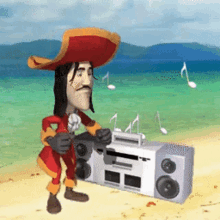Yo Ho Yo Ho, a pirates life for me!
Yarr! Ahoy me mateys! Shiver me timbers and walk the plank, ye scallywags! This pages is about ideals I hold dear relating to these vast seas, we call the internet!

Pirate politics
What are pirate politics?
Pirate Politics are generally those held by the various Pirate Parties across the world (currently quite sucessful in Czechia and Germany - there is also the European Pirate Party and generally they are all associated with Pirate Parties International of which there are 39 total members). These policies include the ideas that the internet is fundamentally a public space - of which content should be accessed, shared and created freely without the pesky governments of the world being able to censor or control it.
Other policies Pirate Parties tend to support include: free speech, free sharing of knowledge (e.g. open content and open access), digital privacy, pro encryption, pro anonymity, anti mass surveillance (both on and offline), among many other things.
The first Pirate Party as mentioned already was started in Sweden (called Piratpartiet) founded in 2006 - motivated by copyright reform, internet freedom, privacy rights and engaging in the democratic process. They gained many members, especially in 2009 during the trial against "the Pirate Bay". It was briefly the third largest political party in Sweden by member count.
Piratpartiet hosted the Pirate Bay during 2010, a bold act that was very based.
The Pirate Parties of the world have (probably) helped influence EU policies for copyright reform to better reflect the digital age, privacy laws such as GDPR, net nutrality positions and transparency.
My personal ideas
Social media companies should have to use algorithms which are approved as part of a standard - such as NIST. This is already the case for things like data sanitisation - ITAD (IT Asset Disposal) companies for example should use an approved erasure algorithm for data sanitisation - e.g. NIST 800-88. I do not see why a governing body should not have a set of strict guidelines for algorithm uses on social media sites - which employ lots of evil methods to steal your attention and are generally a net negative on your life.
Other stuff
I believe piracy is a net positive for the world - that is, the distribution of copied media, software and information. Sure - the corportation loses hypothetical money - but in many cases they were not going to get it off that individual in the first place. If you make a good enough product you may even sway the individual to support you. The majority of piracy in my opinion stems from a bad service. I believe the average music pirate reduced their pirate habits when applications like Spotify appeared and were a benefit to the user. As did the movie pirate reduce their pirate habits when a streaming service actually had what they wanted. The problem now arising is that many of these companies believe that piracy will never come back - they all think that they can make services worse and not expect the consequences. The sad truth is if person A is subscribed to platforms x and y and the content is on neither - they are not going to pay for service z. They will just borrow a digital copy it. And they should.
Digital copies are no different from buying second hand or using a library service. In both of these cases outside of the original purchase they make no additional money from the consumer. This is the same case with piracy. At some point a copy is legally obtained (though sometimes with stolen credit cards lol) - then this is often cracked and shared.
As someone who has been terminally online for ages and spent a lot of time in anime related spaces since ~2008, I personally saw the effects of how piracy helped make the global anime community as big as it is now. Simply if you wanted the newest episodes of anything back then, you would have had to know how to pirate it and where to get it. Official releases were very scarce and very behind the Japanese releases. Fan subs did the heavy lifting in bringing anime to the west. In fact, arguably the largest (and scummiest) legal streaming service, Crunchyroll, originally started life as a piracy site.
I would also argue that other TV show fandoms have benefited greatly from piracy as well. Take Game of Thrones as an example - when it was airing it was regularly one of the most pirated shows - this was due to it being unavailible in many regions. Another good example is Letterkenny - a Canadian sitcom, which I would argue got exposed to people outside of North America through piracy - to the point it is popular enough in places like the UK to get licenced by ITV.
Links
Closing and somewhat unrelated points
FREE ROSS ULBRICHT ! freeross.org
